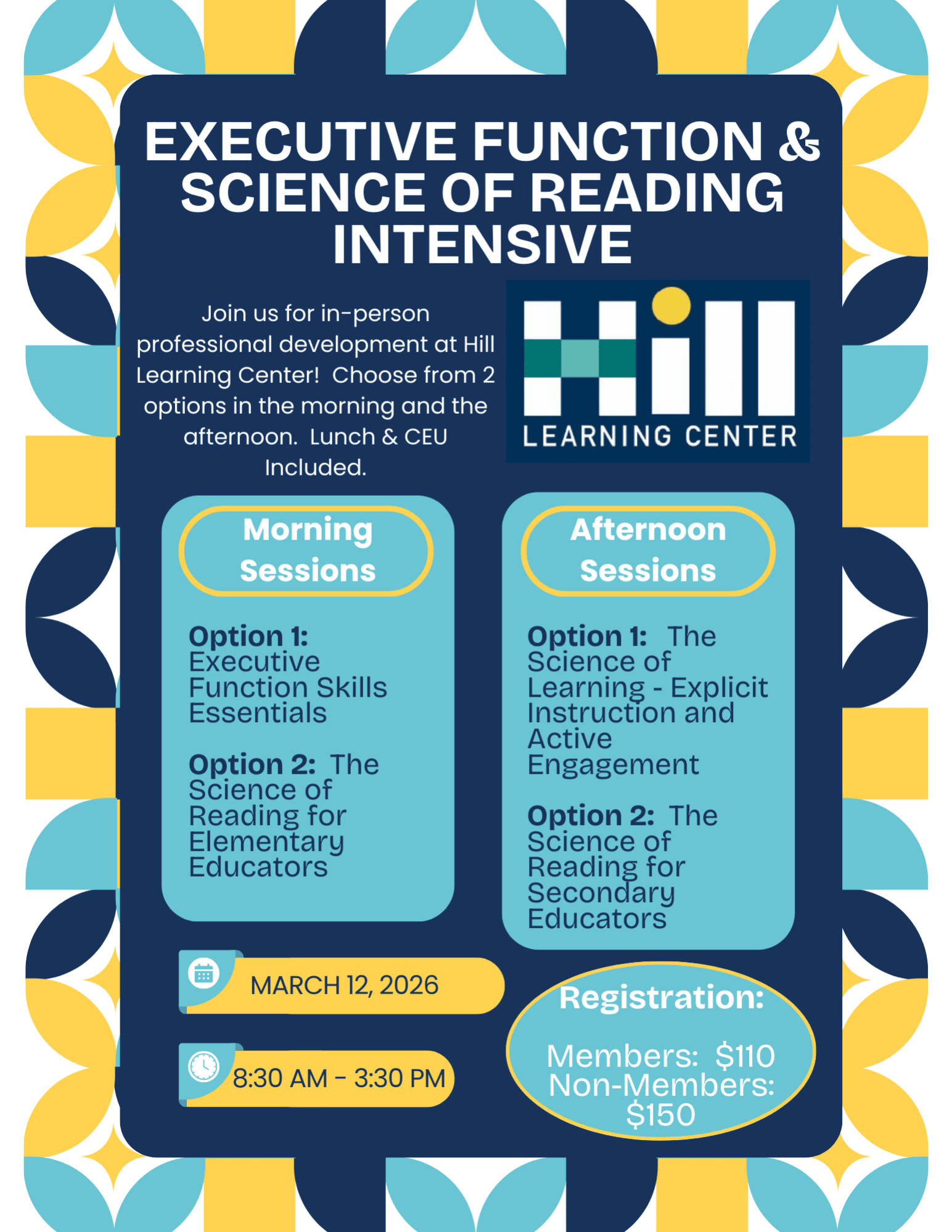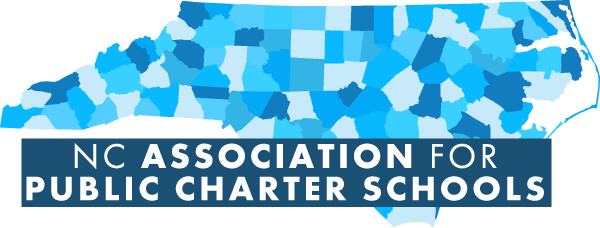Executive Function & Science of Reading Intensive at Hill Learning Center

Executive Function & Science of Reading Intensive at Hill Learning Center
Thursday, March 12, 2026 (8:30 AM - 3:30 PM) (EDT)
Description
Join us for a day of Professional Development on March 12th at the Hill Learning Center in Durham. Choose from two 3-hour sessions (one in the morning and one in the afternoon). Lunch and CEU credits will be provided.
Note: There will be one pre-assignment and one post-assignment per session.
Registration Includes:
- Two 3-hour sessions of your choice
- 0.5 CEUs per session
- Access to workshop resources (slides, handouts, activities, etc.) through Hill's LMS
- Lunch
Morning Sessions:
Time: 8:30 – 11:30 am
Option 1: Executive Function Skills Essentials
Learn the foundations of executive functioning, how to teach executive functioning skills explicitly, and how to integrate them effectively into classrooms and school culture.
This training focuses on what Executive Function is, how these skills develop in the brain and show up in the classroom, and strategies for whole class and 1:1 EF intervention.
Learner Outcomes:
Understand what executive functioning is and how it develops in the brain
Identify factors that can hinder executive functioning development
Recognize and label behaviors as indicators of EF challenges
Design an intervention plan using coaching model and skill-aligned compensatory strategies
Option 2: The Science of Reading for Elementary Educators
This interactive and collaborative session will deepen participants’ understanding of how students learn to read and comprehend text. By connecting the science and research with practical classroom strategies, educators will gain useful teaching tools and feel empowered to meet the literacy needs of their students. Empasis will be on phonemic awareness, phoneme grapheme mapping, oral reading fluency, higher order listening comprehension skills and vocabulary.
Learner Outcomes:
Build a foundational understanding of the science of reading and aligned instructional practices.
Demonstrate basic knowledge of brain research and the cognitive processes involved in learning to read.
Understand reading comprehension as the product of word recognition and language comprehension.
Reflect on and evaluate their instructional practices for phonemic awareness, phonics, fluency, vocabulary and higher order listening comprehension skills.
Afternoon Sessions:
Time: 12:30 – 3:30 pm
Option 1: The Science of Learning – Explicit Instruction and Active Engagement
This session focuses on quality, research-based Tier 1 instructional practices that have proven effective in reaching all learners in the classroom, including those with learning and attention challenges. An overview and simulations of the most common learning and attention challenges is followed by explicit instruction and active engagement techniques that enhance the impact of current lessons and increase student engagement. The goal is to teach so students receive, process, retrieve and apply their learning, resulting in higher achievement.
Learner Outcomes:
Understand and experience common learning differences and attention challenges and how they impact academic achievement
Identify each component of the explicit instructional routine and apply it to a current lesson plan
Understand and observe active engagement techniques and apply them within a current lesson plan
Option 2: The Science of Reading for Secondary Educators
This session will provide teachers of older students with a collaborative learning environment to deepen their understanding of how we all learn to read words and make meaning from text. By connecting the science and research with practical strategies for the secondary classroom, teachers will feel empowered to meet the literacy needs of all of their students. Topics covered include foundational frameworks for the science of reading, word recognition skills in a secondary classroom, background knowledge, vocabulary, and effective comprehension strategy instruction.
Learner Outcomes:
Discuss how to incorporate evidence-based instructional practices into our word recognition instruction, with an emphasis on using structured literacy practices to teach multisyllabic decoding, morphology and fluency.
Identify the critical elements that help unpack language comprehension, and explain why these elements are necessary for skilled reading over time.
Discuss how to incorporate evidence-based, structured literacy instructional practices into how we teach language comprehension skills, including background knowledge, vocabulary, verbal reasoning and inferencing.

3200 Pickett Road
Durham, 27705 United States
19
